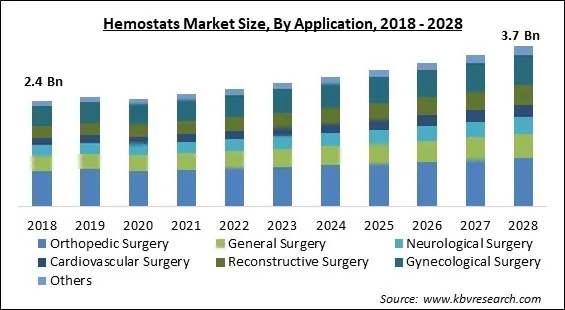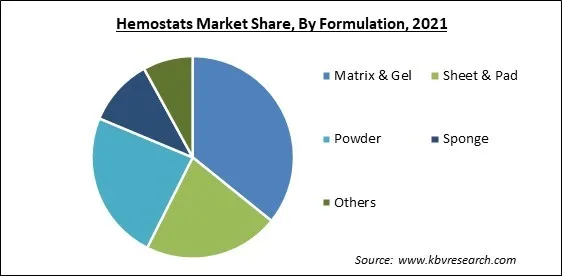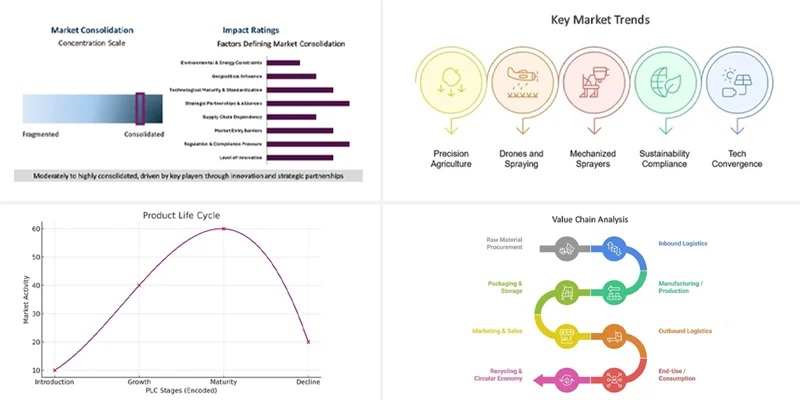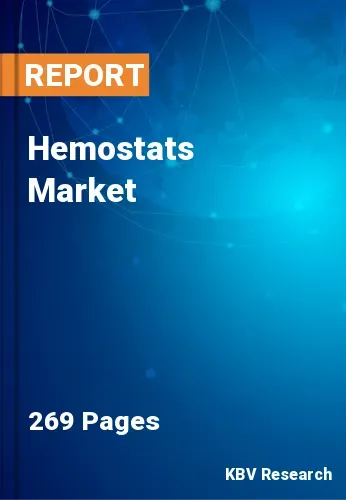The Global Hemostats Market size is expected to reach $3.7 billion by 2028, rising at a market growth of 5.3% CAGR during the forecast period.
Hemostats are surgical instruments used during operations to manage the patient's bleeding. These devices aid in the short-term formation of blood clots to stop bleeding. The usage of these instruments must be carefully controlled and confined, though blood loss happens during operations when blood vessels are damaged. Coagulation of the blood is essential to prevent excessive blood loss. Hemostasis is the process through which blood clots develop at the site of injury.

The main factors influencing the growth of the hemostats market are the rise in the prevalence of various diseases and the increased concern & awareness about health among individuals. Technological developments and rising spending for R&D also contribute to the market's expansion. Additionally, a rise in surgical procedures will serve as lucrative opportunity.
The number of pre-hospital bleeding cases is increasing worldwide, which has grown demand for devices that use thrombin-gelatin based hemostatic matrix. When a splenic mass is surgically removed, there is a high demand for hemostats with the ability to apply good hemostasis to lessen the associated post-operative complications. The need for alternative techniques to handle pre- and post-operative bleeding is being driven by an increase in fatal accidents and overall trauma incidents. This in turn is fueling the market for flowable hemostats to grow.
The demand for flowable hemostats as an efficient blood regulating agent in vascular sites is driven by the underlying requirement for design and development of alternative mechanisms opposing usage of surgical needles. The need for and support from the central government to develop strategies to aid soldiers in combat emergencies like blood control, post-battle trauma, and cardiovascular effects is growing, particularly in nations with high defence spending and active battlefields like India, China, and the United States.
The COVID-19 pandemic has had a detrimental influence on the majority of the industry. Due to widespread lockdown in various nations, the hemostats market has also experienced disruptions in supply chain activities. In addition, since most people are adversely affected by the pandemic, the demand is also down because people are spending on non-essentials during the lockdown. Governments from all across the world are collaborating with pharmaceutical and biotech businesses to combat the COVID-19 outbreak, from fostering the creation of vaccinations to preparing for issues with the distribution of medical supplies.
The increase in surgical procedures performed across the world, which has given rise to an increase in the incidence of bleeding issues after surgeries, is the most important factor driving the growth market. The availability of a wide variety of medical tools for management has significantly improved in recent years, due to the capacity to establish hemostasis during surgical procedures. Rising surgical procedures, such as orthopedic for knee and hip replacements, contribute to the market's expansion. Resection of limbs owing to wounds and damage from various diseases or car accidents are treated surgically.

The rising frequency of product introductions with cutting-edge features is another important market-driving trend throughout the projection period. The effectiveness of modern products in achieving hemostasis is one of its benefits. The product's improvements in R&D are also responsible for additional benefits including lower prices and a decreased risk of infections. This has prompted the creation and production of technologically upgraded product options with a number of enhanced characteristics. In terms of the surgical procedures covered, it has also led to a wider range of applications for these product offerings.
Certain clinical constraints, in some situations, like uncontrolled bleeding, are predicted to limit the adoption of these medicines, which are one of the main market restraints. Despite much lower risks of infections and improved outcomes in the management of bleeding issues during surgical procedures, the product's adoption has been constrained by considerations like its expensive price. Although technological advancements have many benefits, these clinical restrictions significantly limit the use of these goods.
Based on type, the hemostats market is segmented into thrombin based, combination, oxidized regenerated cellulose based, gelatin based, collagen based, and others. The collagen-based segment acquired a substantial revenue share in the hemostats market in 2021. Products made from collagen operate as a physical matrix to encourage platelet aggregation and the release of clotting factors, which in turn drives clot formation which leads to the growth of the hemostats market.
By application, the hemostats market is fragmented into orthopedic surgery, general surgery, neurological surgery, cardiovascular surgery, reconstructive surgery, gynecological surgery and others. The gynecological surgery segment acquired a substantial revenue share in the hemostats market in 2021. Gynecologic surgery includes operations on the vagina, cervix, uterus, fallopian tubes, and ovaries as well as other reproductive organs in females. Gynecologic surgeons frequently perform surgeries on a woman's bladder as well as the rest of the female urinary system.
On the basis of formulation, the hemostats market is divided into matrix & gel; sheet & pad; powder; sponge and others. The powder segment witnessed a substantial revenue share in the hemostats market in 2021. This can be attributed from the increase in cardiovascular illnesses, an increase in use during surgical procedures, and the development of novel surgical products in hospitals. To stop continuous bleeding on big surfaces, powder hemostats are used.
| Report Attribute | Details |
|---|---|
| Market size value in 2021 | USD 2.6 Billion |
| Market size forecast in 2028 | USD 3.7 Billion |
| Base Year | 2021 |
| Historical Period | 2018 to 2020 |
| Forecast Period | 2022 to 2028 |
| Revenue Growth Rate | CAGR of 5.3% from 2022 to 2028 |
| Number of Pages | 269 |
| Number of Tables | 440 |
| Report coverage | Market Trends, Revenue Estimation and Forecast, Segmentation Analysis, Regional and Country Breakdown, Companies Strategic Developments, Company Profiling |
| Segments covered | Type, Formulation, Application, Region |
| Country scope | US, Canada, Mexico, Germany, UK, France, Russia, Spain, Italy, China, Japan, India, South Korea, Singapore, Malaysia, Brazil, Argentina, UAE, Saudi Arabia, South Africa, Nigeria |
| Growth Drivers |
|
| Restraints |
|
Region wise, the hemostats market is analyzed across North America, Europe, Asia Pacific, and LAMEA. In 2021, the North America region led the hemostats market by generating the largest revenue share. Due to the rise in accidents, bleeding disorders, and post-traumatic stress disorder in the region, as well as the demand for cutting-edge mechanisms to replace conventional surgical needles and related equipment, the region is expected to experience significant benefits. The frequency of reconstructive surgeries, particularly tumor excision, has been rising over time.
Free Valuable Insights: Global Hemostats Market size to reach USD 3.7 Billion by 2028
The market research report covers the analysis of key stake holders of the market. Key companies profiled in the report include Becton, Dickinson and Company, Baxter International, Inc., B. Braun Melsungen AG, Teleflex, Inc., Medtronic PLC, Johnson & Johnson, Pfizer, Inc., Stryker Corporation, Integra LifeSciences Holdings Corporation, and Artivion, Inc.
By Application
By Formulation
By Type
By Geography


The Hemostats Market size is projected to reach USD 3.7 billion by 2028.
Rise In The Number Of Surgical Procedures are driving the market in coming years, however, Clinical Limitations Associated With Hemostats restraints the growth of the market.
Becton, Dickinson and Company, Baxter International, Inc., B. Braun Melsungen AG, Teleflex, Inc., Medtronic PLC, Johnson & Johnson, Pfizer, Inc., Stryker Corporation, Integra LifeSciences Holdings Corporation, and Artivion, Inc.
The expected CAGR of the Hemostats Market is 5.3% from 2022 to 2028.
The Matrix & Gel segment acquired maximum revenue share in the Global Hemostats Market by Formulation in 2021 thereby, achieving a market value of $1.2 billion by 2028.
The North America market dominated the Global Hemostats Market by Region in 2021, and would continue to be a dominant market till 2028; thereby, achieving a market value of $1.3 billion by 2028.
Our team of dedicated experts can provide you with attractive expansion opportunities for your business.

